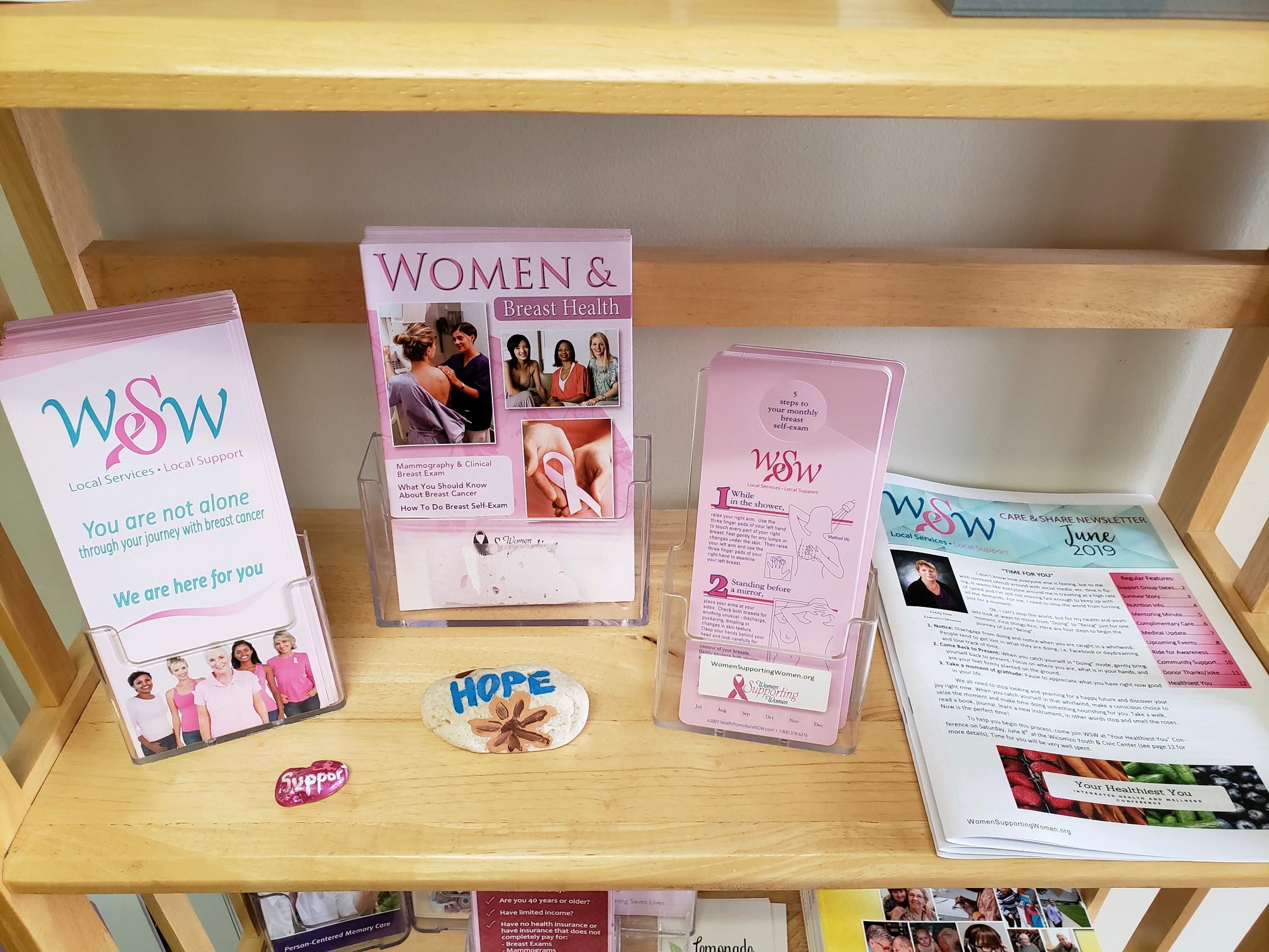
What’s Your Risk?
The American Cancer Society estimates there will be about 252,710 new cases of invasive breast cancer in women and 2,470 in men. Breast Cancer is the most frequently
diagnosed cancer in women. An estimated 41,070 breast cancer deaths (40,610 women, 460 men) will occur in 2017. Breast cancer is the second-leading cause of cancer death in women.
People of all ethnicities get breast cancer. People with different lifestyle habits and from different walks of life develop breast cancer. People with breast cancer can be fit or
overweight, vegetarians or meat-eaters, regular exercisers or “couch potatoes.”
What all people with breast cancer have in common are “bad copies,” or mutations, in the DNA of their breast cells. DNA makes up the genes of a cell. It carries a set of directions that tell cells when to grow and how to stop growing.
These mutations can sometimes come from your mother or father at birth. More often, these mutations develop at some point in your life. Some people are more likely to develop a mutation because cancers run in the family, approximately 12%. Others who have been exposed to certain things during their lives are more likely to get a mutation. We are still learning about the causes of these mutations and why people get them.
Breast cancer is less common in women whose menstrual periods started at a later age, whose menopause started early, who breastfed, who had children before age 30, who
exercise and who are not overweight. But even these traits do not prevent breast cancer—they only give you some protection from developing it. Nothing can completely protect you.
You may be asking yourself, “Why me? What did I do to bring on this breast cancer?” Your questions are a reasonable response to the shock of diagnosis. There is no single cause of breast cancer. There is nothing you did or missed doing that caused you to develop breast cancer. Over time, either on your own or with family and friends, you may find your own answer to this difficult question.
Here are some more risk factors associated with breast cancer:
Age
Women of all ages, including very young women in their 20s and 30s, can develop breast cancer. But your risk increases with age, so the older you are, the more likely you are to
develop breast cancer. Most women who are diagnosed with breast cancer are age 50 or older.
Ethnicity
Although people of all ethnicities get breast cancer, breast cancer is diagnosed more often in white women. In women under age 40, breast cancer is more common in
African-American women than white women. African-American women are more likely to die from breast cancer at every age.
African-American women have lower rates of estrogen receptor-positive breast cancer and higher rates of estrogen receptor-negative breast cancer than white women. In
African-American women, there is also a 30 percent chance that a breast cancer will be triple-negative. Triple-negative breast cancer is a subtype of breast cancer that lacks the three receptors known to fuel most breast cancers: estrogenreceptors, progesterone receptors and human epidermal growth factor receptor 2 (HER2). Young African-American women and Latina women are also more likely to be diagnosed with triple-negative breast cancer.
Asian-American, Latina and Native-American women have a lower risk of developing and dying from breast cancer than other racial and ethnic groups.
Approximately 1 in 40 people of Ashkenazi Jewish ancestry carry a harmful mutation in the BRCA1 or BRCA2 genes, which are linked to higher rates of breast and ovarian cancer.
Genetics and Family Risk
If you come from a family with a history of breast or ovarian cancer, genetic counseling and testing to identify mutations in your BRCA1 or BRCA2 genes may give you more insight into your diagnosis. The BRCA genes—breast cancer susceptibility genes—are known tumor suppressors, or genes that make proteins that help control cell growth. When inherited with a mutation, the BRCA genes can increase the chances of developing breast and ovarian cancer in families.
BRCA testing may give your doctors more information about the breast cancer, and can provide other members of your family information on their chances of developing cancer, too. Knowing your BRCA status may also qualify you for very specific clinical trials.
Your doctor may be more likely to recommend genetic testing if you were diagnosed under age 45, before menopause, diagnosed with triple-negative breast cancer before age 60, have a strong family history of breast or ovarian cancer or are of Ashkenazi Jewish heritage.
For more information, go to: Explore Your Genetics
Facts and statistics found here are a compilation of information from The American Cancer Society and Living Beyond Breast Cancer.
